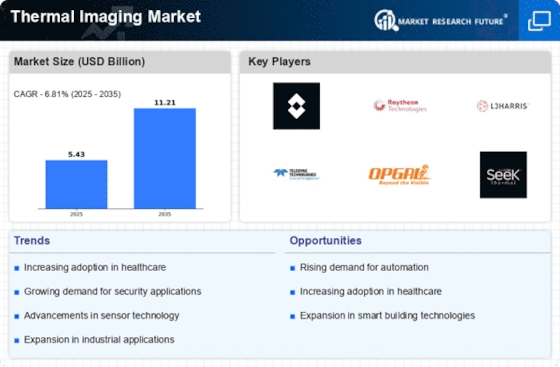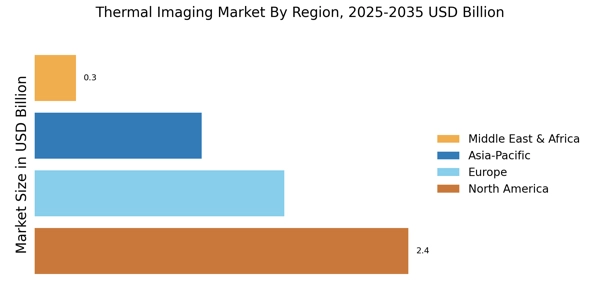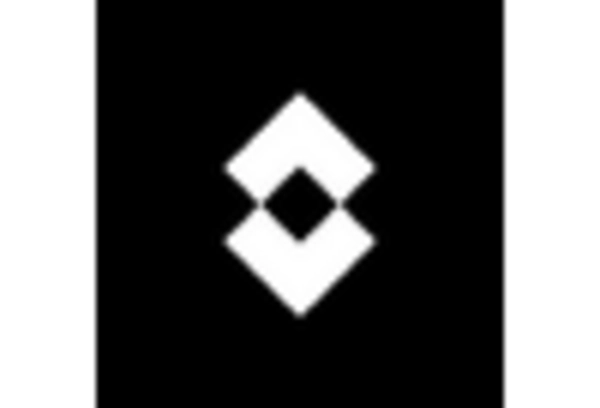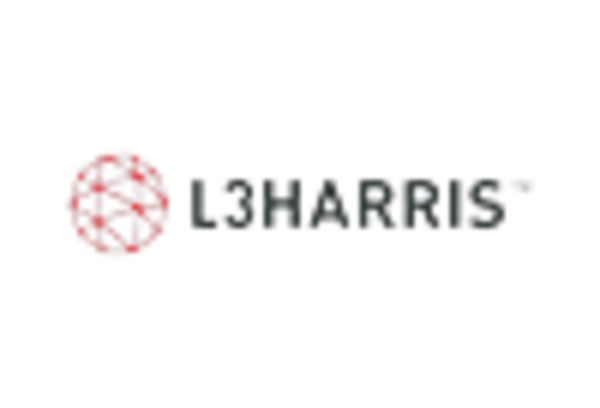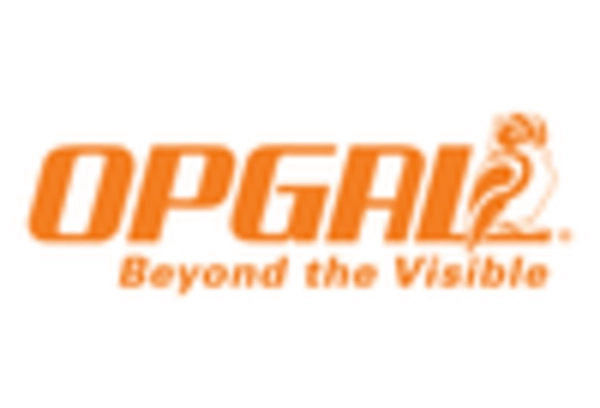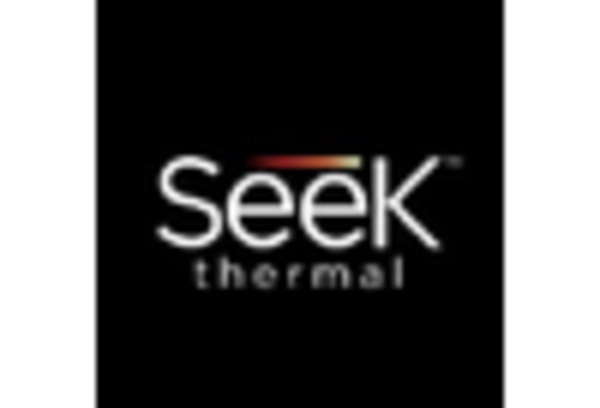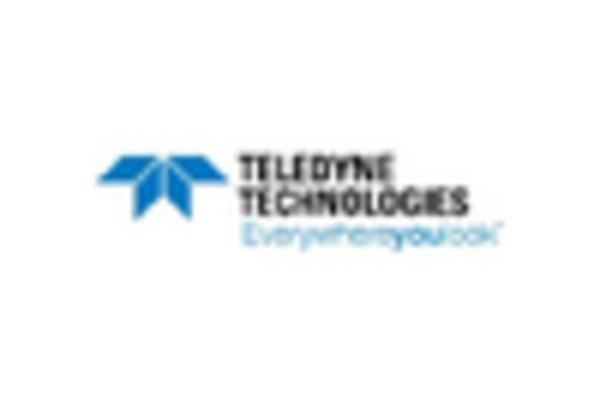Advancements in Technology
Technological advancements play a pivotal role in shaping the Thermal Imaging Market. Innovations in sensor technology, image processing algorithms, and miniaturization of thermal cameras have significantly improved the performance and affordability of thermal imaging solutions. The introduction of high-resolution thermal cameras and real-time data analysis capabilities has expanded the application scope of thermal imaging, making it more accessible to various sectors. Furthermore, the integration of artificial intelligence and machine learning with thermal imaging systems enhances their analytical capabilities, allowing for more accurate and efficient data interpretation. As these technologies continue to evolve, they are expected to drive the adoption of thermal imaging solutions across diverse applications, thereby contributing to the growth of the Thermal Imaging Market.
Growing Demand in Automotive Sector
The Thermal Imaging Market is witnessing a burgeoning demand within the automotive sector, particularly in advanced driver-assistance systems (ADAS). Thermal imaging technology enhances vehicle safety by providing drivers with improved visibility in low-light and adverse weather conditions. As automotive manufacturers increasingly integrate thermal cameras into their vehicles for features such as pedestrian detection and collision avoidance, the market for thermal imaging solutions is poised for substantial growth. The rising consumer awareness regarding vehicle safety and the regulatory push for enhanced safety features are likely to further propel this trend. Consequently, the automotive sector is expected to become a significant contributor to the Thermal Imaging Market, with ongoing innovations and developments in automotive technologies.
Increasing Focus on Energy Efficiency
The Thermal Imaging Market is witnessing a growing emphasis on energy efficiency and sustainability. Organizations are increasingly utilizing thermal imaging technology to conduct energy audits and identify heat loss in buildings, which is essential for optimizing energy consumption. This trend is particularly relevant in the context of stringent energy regulations and the global push towards reducing carbon footprints. By employing thermal imaging, companies can pinpoint insulation deficiencies and implement corrective measures, leading to significant energy savings. The market for thermal imaging solutions in energy efficiency applications is expected to expand as more businesses recognize the financial and environmental benefits of adopting such technologies. This focus on sustainability is likely to be a key driver for the Thermal Imaging Market in the coming years.
Rising Demand in Industrial Applications
The Thermal Imaging Market is experiencing a notable surge in demand across various industrial sectors. Industries such as manufacturing, oil and gas, and construction are increasingly adopting thermal imaging technology for predictive maintenance, quality control, and safety inspections. The ability to detect heat anomalies allows companies to prevent equipment failures and reduce downtime, which is crucial for operational efficiency. According to recent estimates, the industrial segment is projected to account for a substantial share of the market, driven by the need for enhanced productivity and safety measures. As industries continue to embrace automation and smart technologies, the integration of thermal imaging solutions is likely to become more prevalent, further propelling the growth of the Thermal Imaging Market.
Expansion in Military and Defense Applications
The Thermal Imaging Market is experiencing robust growth in military and defense applications. Thermal imaging technology is crucial for surveillance, reconnaissance, and target acquisition, providing enhanced situational awareness in various operational environments. The increasing defense budgets in numerous countries are facilitating the procurement of advanced thermal imaging systems, which are essential for modern warfare and security operations. Moreover, the ongoing geopolitical tensions and the need for border security are further driving the demand for thermal imaging solutions in defense applications. As military forces continue to invest in cutting-edge technologies to maintain operational superiority, the Thermal Imaging Market is likely to benefit from this trend, with significant investments expected in the coming years.

